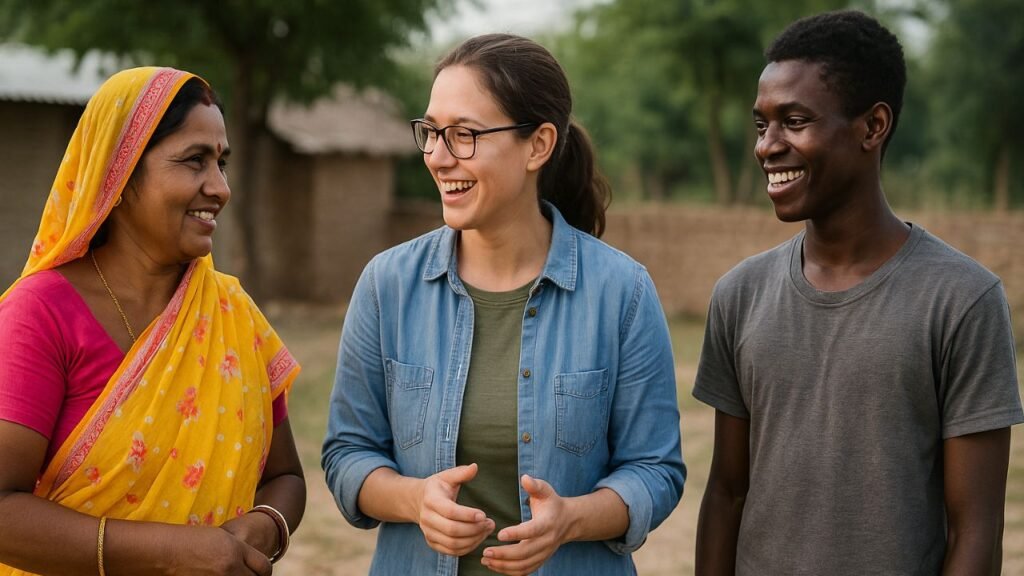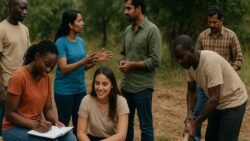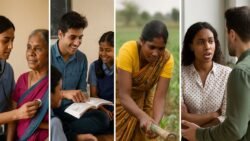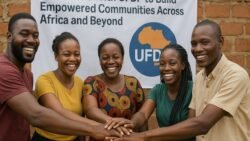Development Projects – Across the globe, inclusive development projects are playing a crucial role in uplifting underserved communities, particularly in the areas of gender equity, sustainable livelihood, and youth empowerment. These programs not only aim to bridge social and economic gaps but also foster long-term resilience by nurturing potential where it matters most. From grassroots interventions to capacity-building workshops, such initiatives focus on empowering women, creating job opportunities for rural populations, and equipping youth with skills that align with modern-day employment demands. Organizations around the world are increasingly partnering with local institutions and NGOs to create sustainable change by offering mentorship, access to resources, and community-driven platforms. Gender equity projects, for instance, are working to dismantle systemic barriers in education, leadership, and employment for women and girls, while livelihood missions emphasize entrepreneurship and vocational training to promote self-sufficiency. At the same time, youth empowerment drives ensure that the next generation is equipped with critical thinking skills, digital literacy, and leadership tools. Together, these development themes form the foundation for a more inclusive and resilient future.

Gender Equity Initiatives Transforming Rural and Urban Communities
Gender equity remains a foundational pillar in sustainable development. Programs focused on empowering women have been instrumental in challenging patriarchal norms and expanding access to education, leadership roles, and economic participation. Organizations like UN Women have been leading efforts to address gender-based violence and promote economic justice. In rural areas, gender-focused projects provide vocational training for women, support for female entrepreneurs, and community awareness programs to break cultural stereotypes. Initiatives such as self-help groups (SHGs), micro-financing, and women-led cooperatives are redefining roles and allowing women to take charge of their financial futures. In urban settings, mentorship programs and skill-building workshops are helping women enter STEM fields, politics, and business leadership. These gender-equity initiatives not only uplift individuals but contribute to healthier families, stronger communities, and inclusive governance. The goal is not just equality, but equity—providing the necessary support to those who’ve been historically marginalized.
Livelihood Programs That Promote Economic Independence
Livelihood initiatives serve as a cornerstone for long-term economic development, especially in under-resourced communities. These programs focus on skills training, small business development, sustainable agriculture, and access to financial services. Agencies like the International Food Policy Research Institute (IFPRI) have highlighted the importance of integrating livelihood strategies with local economies. Development programs help participants transition from dependency to independence by equipping them with tools like market linkages, digital platforms for sales, and vocational training aligned with local demand. For example, promoting sustainable farming techniques or eco-friendly crafts has not only generated income but also encouraged environmental stewardship. In addition, mobile-based microcredit services are enabling rural entrepreneurs—especially women—to fund their ventures and scale operations. These livelihood efforts play a pivotal role in reducing poverty, discouraging migration, and supporting inclusive growth at the grassroots level.
Empowering Youth Through Education and Innovation
Youth empowerment is central to any nation’s progress. Development projects designed for young people emphasize skill-building, education access, digital literacy, and entrepreneurship. Global initiatives like United Nations Youth Strategy stress the need to invest in young minds to harness their potential. By offering structured mentoring programs, leadership camps, and vocational education, these projects ensure that youth are not only job-ready but also capable of becoming changemakers. Many NGOs and educational foundations are collaborating with schools and colleges to integrate soft skills, coding, financial literacy, and climate awareness into their curricula. Moreover, innovation hubs and start-up incubators targeted at youth help them turn their ideas into viable business models. These youth-centric efforts are especially critical in regions with high unemployment, as they pave the way for self-employment, civic engagement, and social innovation.
 UFDP Supports Grassroots Change Through Peacebuilding, Education, and Sustainable Development
UFDP Supports Grassroots Change Through Peacebuilding, Education, and Sustainable Development
Building Inclusive Communities Through Interconnected Development
True development occurs when all elements—gender equity, livelihoods, and youth empowerment—work together. Holistic approaches that intersect these three focus areas have proven most effective in building sustainable, inclusive communities. For instance, a single community center may offer tailoring courses for women, coding bootcamps for youth, and farming skills for entire households. Organizations like Oxfam and others are pioneering integrated models that bring these pillars under one roof. These comprehensive programs promote intergenerational learning, community ownership, and resilience in the face of socio-economic challenges. By creating safe spaces, offering access to information, and aligning efforts with government policies, such projects ensure that the impact is both deep and wide. As global attention grows on issues like climate change and digital inclusion, development models must continue to adapt, remaining people-centric and locally grounded. The ultimate goal is to enable empowered individuals who, in turn, uplift their communities.






